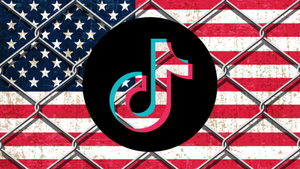TikTok has submitted its opening brief in the legal battle to stop the platform from being banned in the US next January. It is scathing of US Congress, which passed the law instigating the ban.
“Never before has Congress silenced so much speech in a single act”, it says. Under the US constitution, the court is now obliged to “examine such an extraordinary speech restriction with the utmost care and most exacting scrutiny”. And yet, TikTok claims, Congress has provided very little information to scrutinise.
“Congress enacted no findings”, the legal filing continues. “There is no indication Congress even considered TikTok’s exhaustive, multi-year efforts to address the government’s concerns” about the security of US user data on the TikTok platform. “Congress said nothing about the less restrictive alternatives to a ban”, including the 90 page agreement the company negotiated with the US government which “offers multi-layered safeguards and enforcement mechanisms”.
Lawmakers in the US took action against TikTok over concerns that the Chinese government has access to American user-data via the social media company’s China-based owner ByteDance, something TikTok denies. Technically the ban can be avoided if ByteDance sells TikTok by 19 Jan 2025, although it has repeatedly claimed that doing so isn’t possible.
In the new legal filing, TikTok says it has “repeatedly explained why this type of divestiture would not work”, arguing that “Congress apparently never even considered whether it was possible”.
Even if a sale of TikTok just within the US was viable, it goes on, the standalone US version of the app would be “a shell of its former self, stripped of the innovative and expressive technology that tailors content to each user. It also would become an island, preventing Americans from exchanging views with the global TikTok community”.
A group of TikTok creators are also seeking to block the ban and they have filed their own opening brief. They argue that neither Congress nor the US government has provided evidence supporting the alleged data security risks and, even if they had, “there would be far narrower means to address any data security concern”.
They argue that a more narrow approach for dealing with any data security concerns should be prioritised, because of the fundamental attack on free speech caused by an outright ban.
Running with that theme, they state, “Our constitutional tradition leaves no room for the government to stop petitioners from expressing their ideas through the editor and publisher they have chosen. The government could no more prohibit a freelance journalist from publishing in a magazine of her choice; forbid an actor from working with a particular director; or tell a musician what studio he can record in”.
The arguments made in both filings have been made before, though the language is particularly bombastic here. “In many nations, the right to free speech is subject to the whims of politicians”, the creators declare. “Not in this one, where the First Amendment stands as a bulwark against governmental efforts to censor speech - and all the more so where the censorship is based on the content of speech, its speaker, or the editorial practices that facilitate its publication”.
TikTok itself concludes, “the Constitution does not allow Congress to single out one speech platform, make no findings, announce no justifications, ignore less restrictive alternatives, and discriminate based on speaker and content”.
Based on all that, the courts should block Congress’s big TikTok ban, TikTok and its creators state.
The US government now has until 26 Jul to put together its defence of the sell-or-be-banned law.

